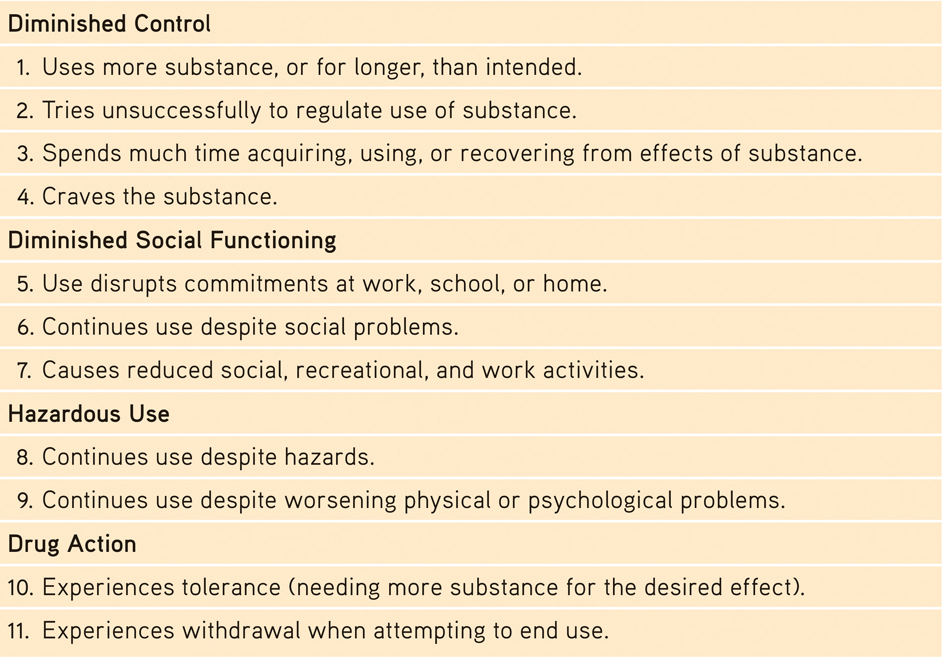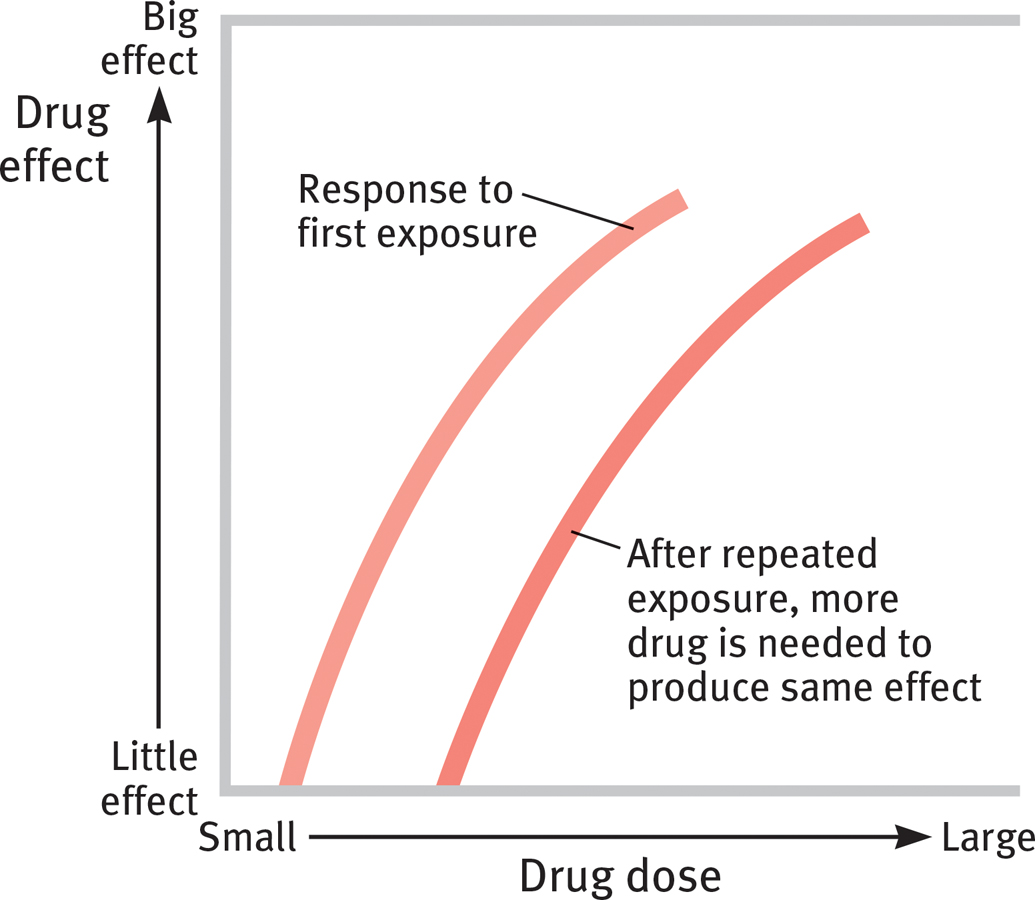10.1 Tolerance and Addiction
10-
Most of us manage to use some nonprescription drugs in moderation and without disrupting our lives. But some of us develop a self-
 Table 10.1
Table 10.1When Is Drug Use a Disorder?
According to the American Psychiatric Association, a person may be diagnosed with substance use disorder when drug use continues despite significant life disruption. Resulting brain changes may persist after quitting use of the substance (thus leading to strong cravings when exposed to people and situations that trigger memories of drug use). The severity of substance use disorder varies from mild (two to three of these indicators) to moderate (four to five indicators) to severe (six or more indicators). (Source: American Psychiatric Association, 2013.)

Why might a person who rarely drinks alcohol get buzzed on one can of beer while a long-

 Figure 10.1
Figure 10.1Drug tolerance
THINKING CRITICALLY ABOUT
THINKING CRITICALLY ABOUT: Addiction
10-2 How has the concept of addiction changed?
In recent years, the concept of addiction has been extended to cover many behaviors formerly considered bad habits or even sins. Psychologists debate whether the concept has been stretched too far, and whether addictions are really as irresistible as commonly believed. For example, “even for a very addictive drug like cocaine, only 15 to 16 percent of people become addicted within 10 years of first use,” observed Terry Robinson and Kent Berridge (2003).
Addictions can be powerful, and many addicts do benefit from therapy or group support. Alcoholics Anonymous has supported millions in overcoming alcohol addiction. But viewing addiction as an uncontrollable disease can undermine people’s self-
The addiction-
Sometimes, though, behaviors such as gambling, video gaming, or online surfing do become compulsive and dysfunctional, much like abusive drug taking (Gentile, 2009; Griffiths, 2001; Hoeft et al., 2008). Thus, psychiatry’s manual of disorders now includes behavior addictions such as “gambling disorder” and proposes “Internet gaming disorder” for further study (American Psychiatric Association, 2013). Studies in Asia, Europe, and North America estimate gaming addiction rates of from 3 to 12 percent of players (Anderson et al., 2012; Ferguson et al., 2011). Some Internet users display an apparent inability to resist logging on, and staying on, even when this excessive use impairs their work and relationships (Ko et al., 2005). But there is hope. One research review found both psychological and drug therapies for Internet addiction “highly effective” (Winkler et al., 2013).

RETRIEVAL PRACTICE
- What is the process that leads to drug tolerance?
With repeated exposure to a psychoactive drug, the drug’s effect lessens. Thus, it takes bigger doses to get the desired effect.